Dove hunting is a very popular sport, but it can be difficult for beginners. The first step to successful dove hunting is trying to find the best place to hunt. A lot of people are surprised by how much location matters when it comes to dove hunting. For example, if you want to shoot doves out of the sky with ease, then waterfowl hunts near marshes will usually provide an abundance of opportunities.
Table of Contents
Essentials in Dove Hunting: Everything You Need to Know
Hunting Dove can be very fun and rewarding. It’s a great way to spend time with family or friends while enjoying the outdoors on your land, at someone else’s land, or even just in your backyard if you have no other choice. Dove hunting is a great alternative to just practising archery or shooting off your guns at cans, not to mention it’s also very inexpensive if you already have all the necessary items. If you are new to dove hunting here are some essentials in Dove Hunting that will help make your first time out more enjoyable and successful.
Habitat and Behavior
The first step of dove hunting is to find where the doves are living locally. This will depend heavily on what type of terrain you live near as well as how many trees there are around for them to roost/nest in during the night cycle. Once this has been determined research different types of shotguns that would work best depending upon all these variables above combined with personal preference (ease of use, size).

Dove hunting isn’t a very popular sport so finding people to go with is going to be difficult. The best way is probably through friends or neighbours, but if you can’t find anyone tries posting on forums like Reddit where there are usually sportsmen looking for others to join them in their dove hunts.
As far as doves themselves, they typically come out between mid-morning and early evening (although this varies by time of year). They eat during the morning hours then head into trees that will provide shade while they digest their food; it’s at this point that hunters would want to start pursuing them since they’re not flying around much anymore. During midday, these birds take naps which makes due to how warm it gets during this time of day.
Dove hunting tips vary depending upon where one is trying to hunt doves, what type of terrain and weather are present during dove season, how many people are going on the hunts with etc. These tips should help beginner hunters bag some birds though!
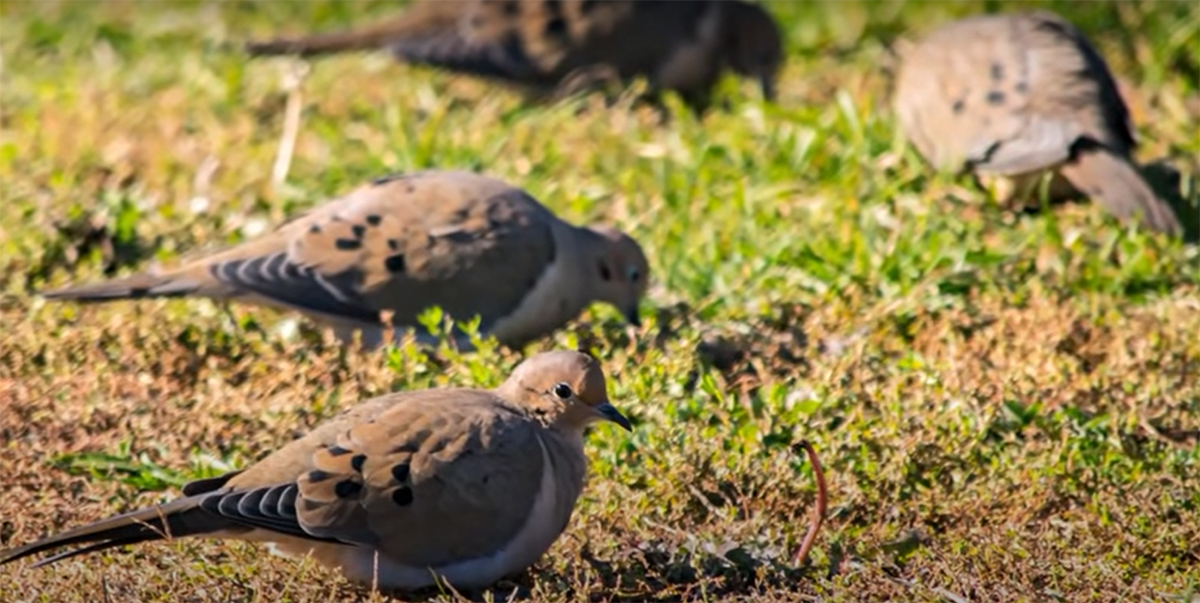
How to Attract Doves to Your Dove Hunting Spot:
Food is one of the most important keys to attracting doves and other birds. You can try hunting in a field where seeds or grains are available for them.
Doves are also attracted to bird feeders. If you own a backyard garden, doves will surely be happy visiting your place now and then just to eat the seeds that they can find there. You can put out some birdseed or bread crumbs for them as well.
The food preferences of doves vary a lot. They can eat anything from fruits, seeds and grains to insects and worms.
The most popular kinds of bait for doves would include bread crumbs, chaffinches (birdseed), millet spray, white proso millet and cracked corn among others. If what you’re using seems too strong or doesn’t work well, you can also try something else and see if it will be better.
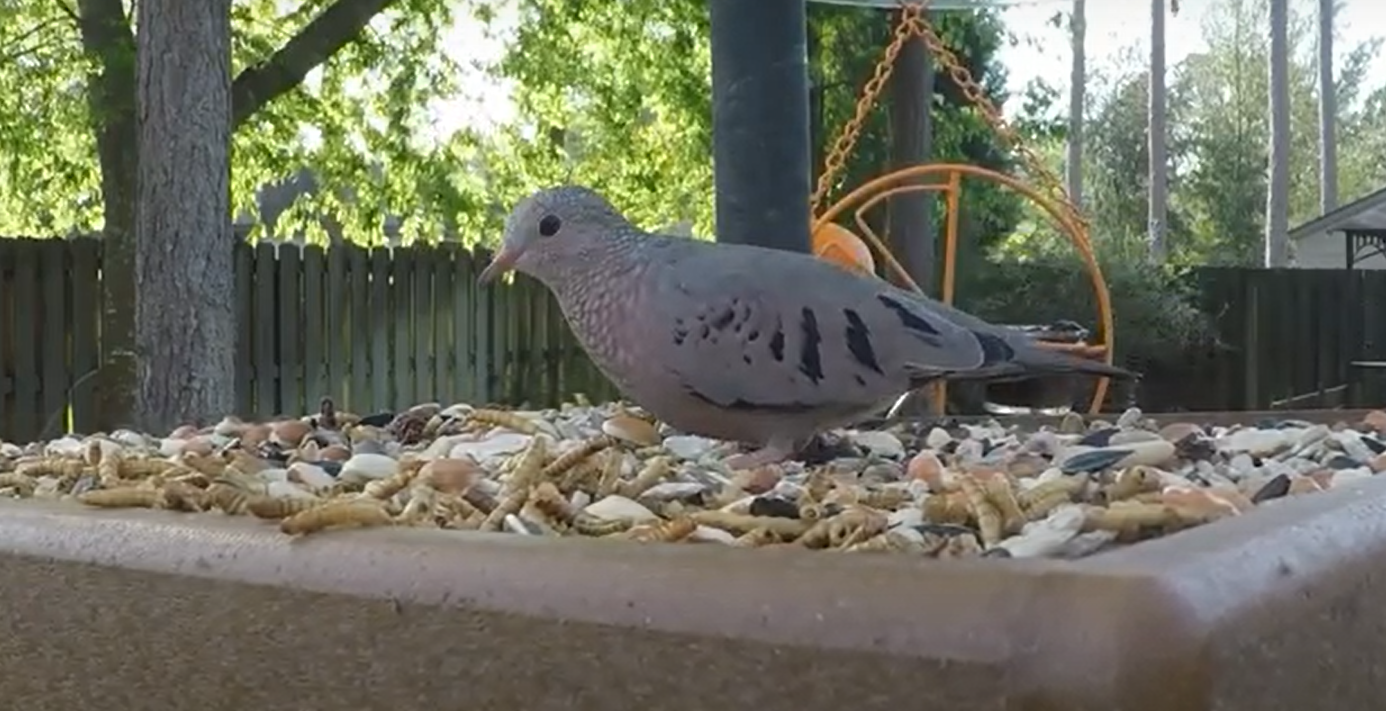
There is a wide range of bird feeders that you can choose from these days to use for your dove hunting experience. But before buying them, make sure they are easy to set up and clean as well so that the birds won’t have any trouble eating off their surface.
In addition to putting food out in your dove field during feeding time, there’s nothing wrong with setting up some decoys as well, just like what hunters do when using duck calls or goose calls. You may want to place those devices around your spot because this might help attract doves more effectively especially when combined with the good bait choices mentioned above. It works best if you can place them in nearby trees.
Water is another important factor in attracting birds, especially doves and other types of pigeons, so setting up a small pool near your hunting spot would work well too.
Location
It is important that whatever spot you select for hunting doves should be quiet and secluded. If you can attract other birds like pigeons then there is a chance that doves might also come in the vicinity as well because these two species share food preferences. For this reason, it is best to avoid hunting doves near your home or even in places where the local population feeds these birds.
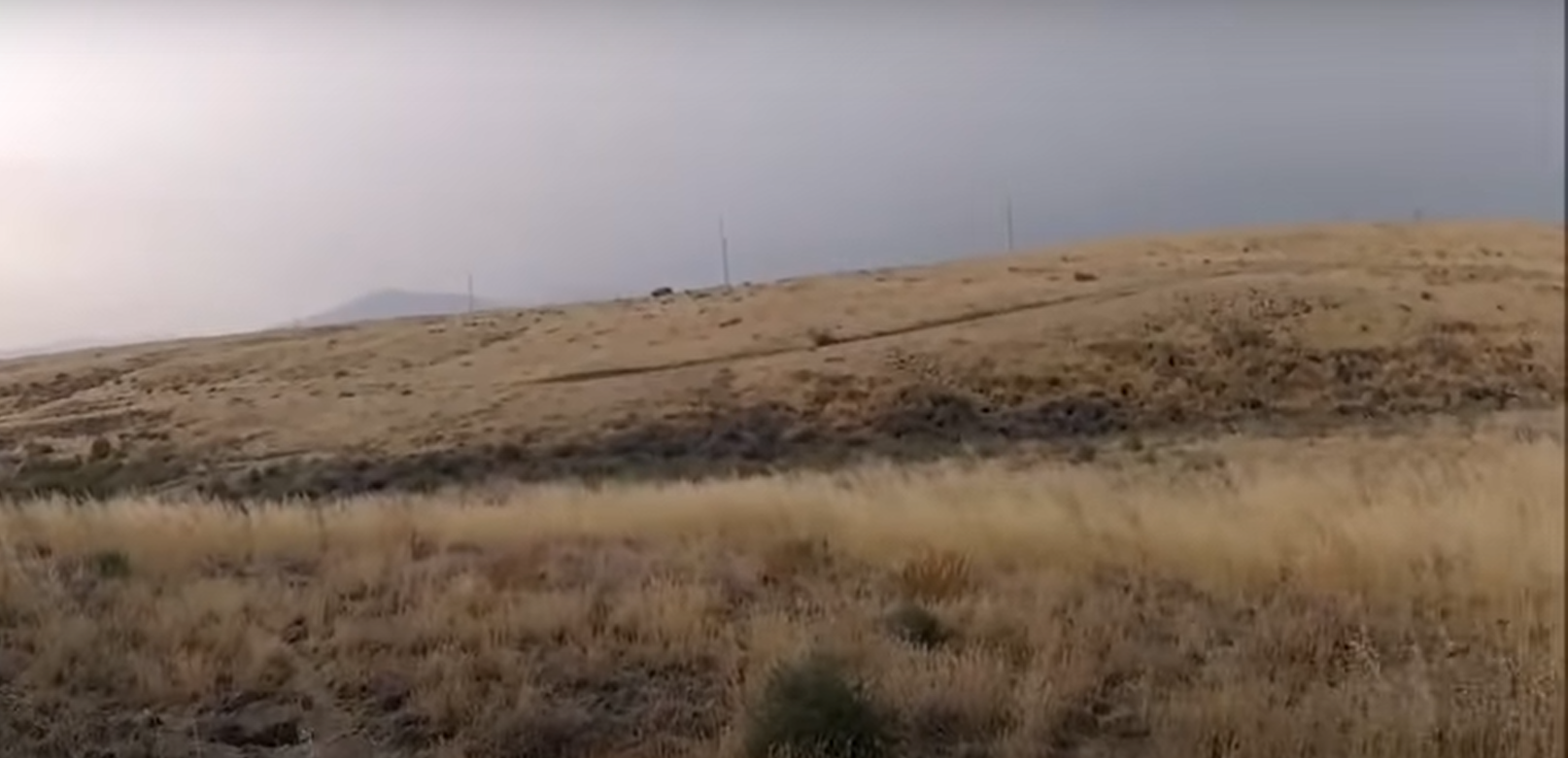
Doves prefer dry and warm climates but can also be found living in woodlands, grassland and deserts with trees that provide them shade during the summertime. For a better dove hunting experience you should go for a location that has all three of these features; i.e., open fields surrounded by woods or bushes with an adequate source of water nearby like small rivers or ponds.
If possible try finding out where dove roosts are located so that your chances of shooting one increases significantly after sunset when most hunters go home empty-handed! You may not get done all season long but once in a while, they will show up on their nesting spots which means a double reward for you.
You must leave an area open where hunters can shoot at doves without disturbing others because this way it becomes easier to hunt these winged creatures with guns or rifles if ever you wish to go hunting them using such equipment rather than doing it by hand (using nets).
Scouting the Field
Dove hunting fields require scouting to be especially successful. You need to know where the doves are flying and when they fly, so you can prepare accordingly for your hunt. Additionally, scout for signs of hunters in other blinds (feeders or watering holes). If there is another hunter nearby it might not be a good idea to go on that day because there could potentially be too much competition for food or water sources.
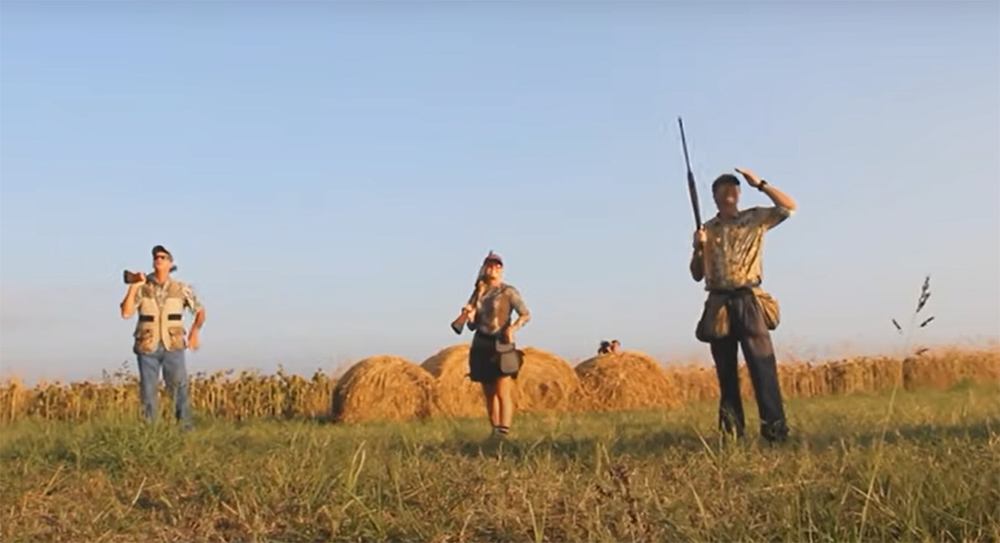
Once you have scouted your field, it is important to know exactly where each doves’ food and water source is. This will allow you to hit both of these areas on your hunting trip to ensure that you can bag multiple birds instead of just one. Be sure not to overhunt a certain area; only go after the doves when they are flying through or feeding at their usual location(s). Overhunting an area makes it harder for other hunters because there may be less available game if all the bird population has been depleted from that location. It also leaves little sustenance for future hunts which could lead to starvation later in the season for different types of wildlife (including humans) who rely on the food source.
Dove hunting fields will often have more than one watering hole which can be a potential location for multiple doves to flock together at different times of the day. This makes it easier for first-time hunters because you are likely to get multiple shots off if your shots are well aimed and quick enough on target so they don’t fly away before being hit by your bullet or pellet. However, keep in mind that water sources attract other types of birds as well so pay attention to any larger species who might give you competition when trying to shoot down smaller doves! When practising with your shotgun make sure not only to practice shooting but also dry fire (firing without live ammunition). Dry firing is just as important however it is not as widely known or practised because it is crucial to know how your gun fires. Dry firing every day will help you gain muscle memory for aiming and shooting down doves, which makes the real hunt much easier!
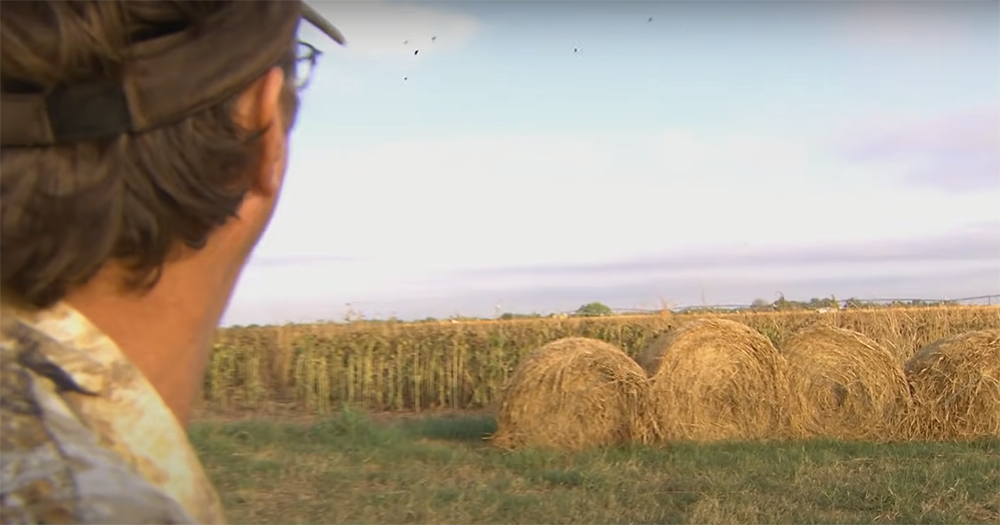
Dove hunting fields are usually fairly small with a smaller number of birds, but that does not mean they should be hunted too quickly or easily. Strategize where best to position yourself to get the most out of each shot by knowing what direction the dove flies from when leaving their food source and flying towards another location (usually away from water sources). Dove hunting fields typically have a lot more than one entrance/exit so make sure you wait until there is enough space between other hunters going on your trip; otherwise you might end up fighting for space and scaring the doves off before you can get a shot.
Hunting Tips Every Beginner Needs to Keep in Mind
Use Camouflage
Dove hunting is a great activity, but only if you use the right equipment and wear camouflage. The tradition of wearing bright orange for hunters has been around since they were limited to shotguns and bows as their weapons. Now that more and more people are using rifles, it has become even more important to ensure your body does not stand out against the background – this will help prevent any accidents where someone mistakes you for game or prey!
It’s also important to consider what type of clothing works best when trying to hunt doves. It should be light in colour so there aren’t any shadows that might spook the birds off; additionally, loose-fitting clothes can help hide your movements from them too – something called “diversion” hunting.
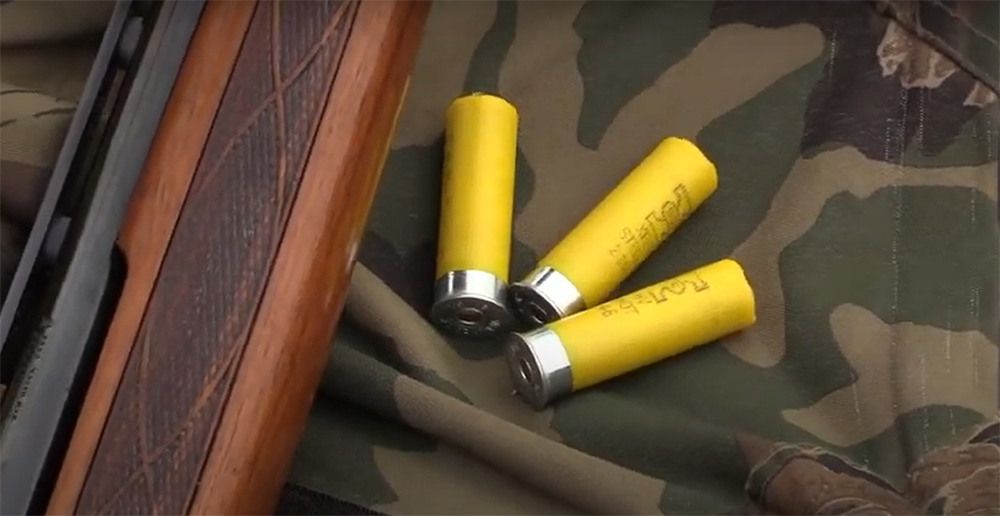
There are several types of camouflage for dove hunting, so if you plan on trying it out more than once or twice then definitely invest in some good clothing.
When it comes to blaze orange (which hunters usually wear during dove hunting) the best option is a hat and vest. This will ensure you’re completely covered without having too much clothing on – which can get very hot in the summer months, especially if you plan on doing this outside! Blaze orange can help protect you against other hunters, but if it’s not bright enough even they might have trouble seeing where your body ends and the land begins.
Decide on a camouflage pattern that will help you blend in with your surroundings. It needs to be light enough so it doesn’t weigh down the clothes but dark enough so it can conceal you from being noticed by doves off in the distance when they fly over or spot you if any are perched close by.
Accessorize Appropriately
Dove hunting calls for the right accessories to bring out your prowess. It is not as simple as it seems and you need a few items like dove decoys, clays throwers, etc., to make yourself look professional enough. You also need proper clothing that will help you blend into the environment well without making too much noise or movement which can scare off doves away from your location.
- Good boots are essential. You need to be on your feet for hours together, so wearing comfortable shoes that will not hurt your feet is very important. Hunting in muddy areas also requires you to wear waterproof footwear which keeps water out and cushions your feet from all the muck around you.
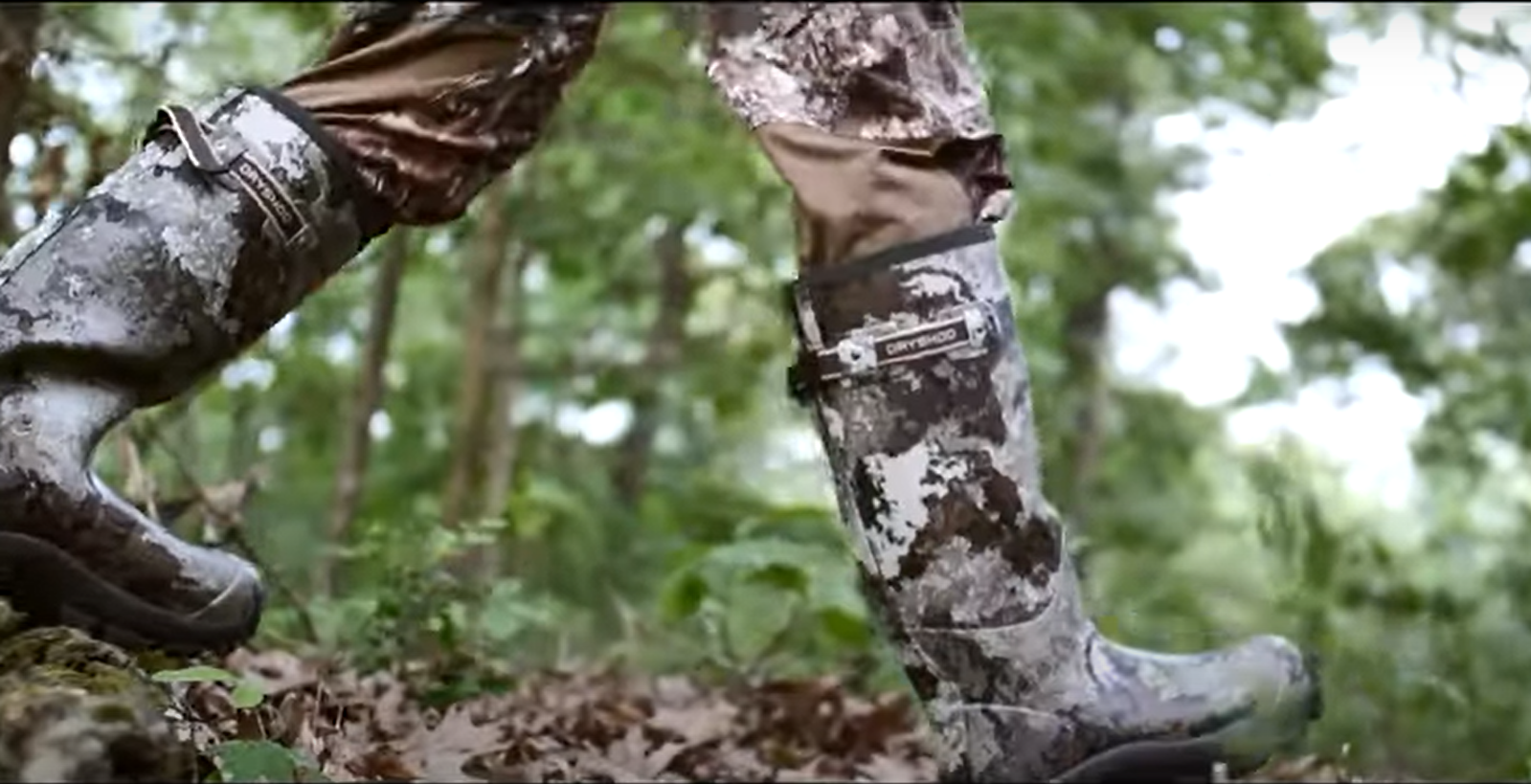
- Also wear closed shoes because they will help you walk over different kinds of terrain quietly without making much noise which can alarm doves away since sounds travel faster through water than air due to their denseness.
- Most importantly make sure you have a hat or cap of some sort because if the sun hits directly on top of your head it can get extremely uncomfortable especially when hunting standing up near fields where there is no shade at all. A wide-brimmed hat with a neck protector works best here! It’s always better to look into this beforehand instead of suffering later during long hunts!
- Your outfit should be comfortable and not too baggy or tight. This is to make sure you move around easily without getting caught up in your clothes and causing yourself discomfort while shooting the birds of the sky. You need a pair of gloves to protect your hands from calluses, chafing, etc., if any rough surfaces come into contact with them like tree branches or gunmetal parts during hunting.
Explore
Dove hunting can be an exciting and challenging experience. If you’ve never hunted these birds before, it might make sense to get a good idea of what the sport entails and how best to prepare yourself for your first hunt.
Once you have a good idea of what the sport entails, it’s time to start preparing for your hunt. You should pick out a hunting ground or two that will provide ample opportunities for dove hunting and go over all the gear so you know everything is in working order before taking off on your adventure.
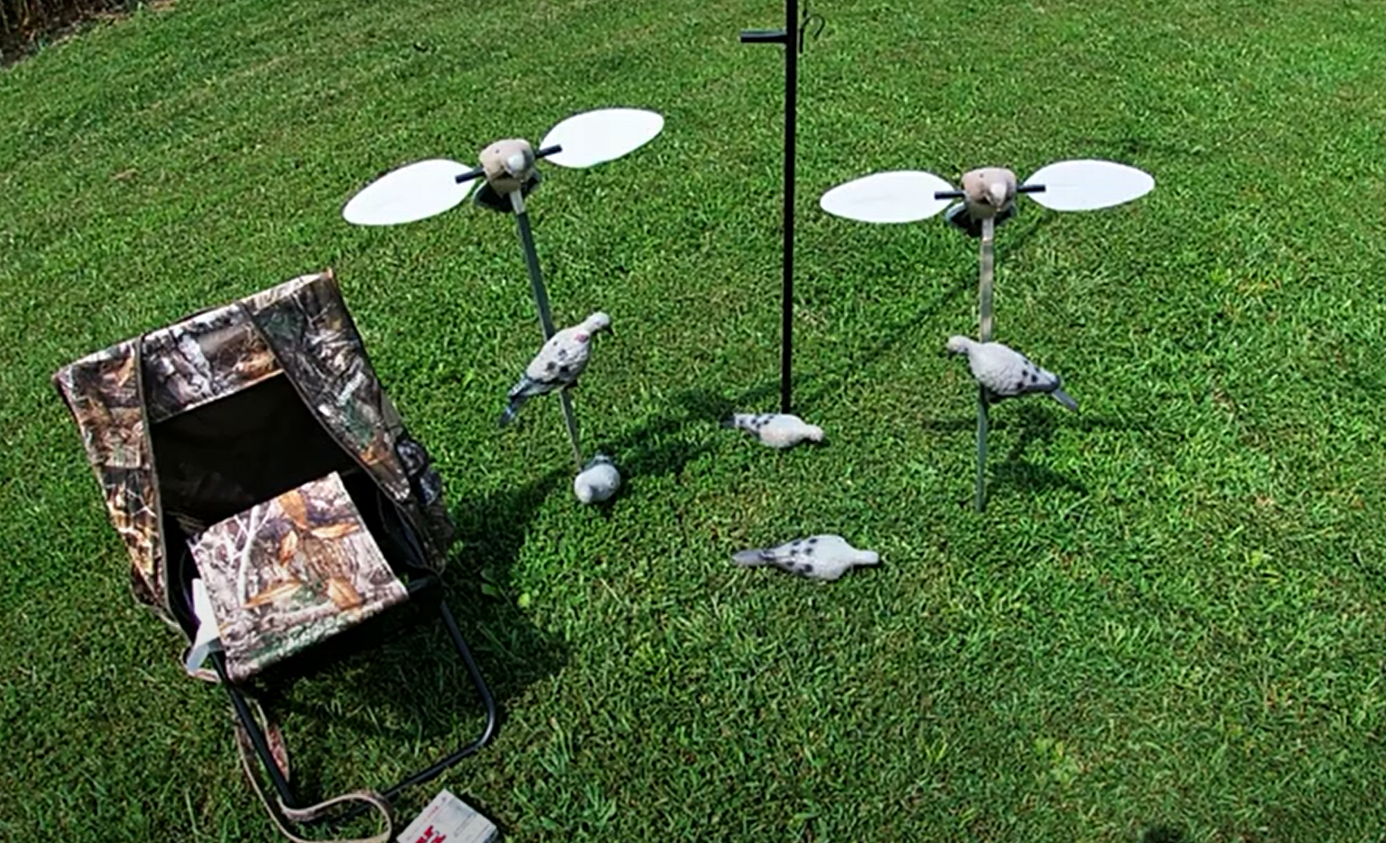
Once at your chosen location, spend some time learning about where doves typically hang out so you can be aware of their habits before heading into the field with an experienced hunter who can give you pointers along the way while showing how best to get closer to these birds without scaring them away.
It is important to note that dove hunting has specific seasons in which this activity becomes legal, so if you want to try your hand at this endeavour during certain months, then particular rules must be followed based on where you live (and when). The season typically begins around September or October each year; however, some states begin their sessions even earlier than others!
Take Cover
Dove hunting is a fun sport, but it can also be dangerous. Be aware of your environment at all times and make sure you are safe while hunting doves! Hunting in fields with tall grass or places that have lots of leaves on the ground means there could be snakes crawling around that might surprise you when they slither out from under them.
If possible, wear boots instead of shoes so if something does come after you’re better equipped to defend yourself against bites. There’s nothing worse than being stuck in the middle of nowhere without any materials to use for first aid because you were unprepared about what dangers may lie ahead during dove season.

You should possibly find a place where you can hunt that has a lot of covers, just in case something goes wrong. There’s nothing worse than having to stay out all night without any food or water because you didn’t have enough supplies with you when disaster struck.
Take cover from the sun as well. Make sure you have a hat and sunscreen on to protect your skin from getting burned, especially if it’s going to be a long day of hunting doves in the summer heat! Doves are more active during early morning or evening hours so make sure you bring plenty of water with you since they will make you sweat.
Use the Right Rifle
Dove hunting is a sport that requires much skill and patience. It can be very frustrating if you are not equipped with the right equipment. Dove will fly high, so your shooting range should go beyond 100 yards to maximize accuracy. If possible, use a rifle with open sights because it’s difficult to see where doves are flying when they are up in the sky.
The right rifle is a crucial element of your success in dove hunting. A simple model also makes it easier to learn new skills and manoeuvres that will help you become better at the sport.
It is easy for beginners to get discouraged while trying out a new activity, so having an affordable rifle means they can practice more without breaking the bank. Dove hunting requires patience and precision, making open sights essential when shooting from long ranges.
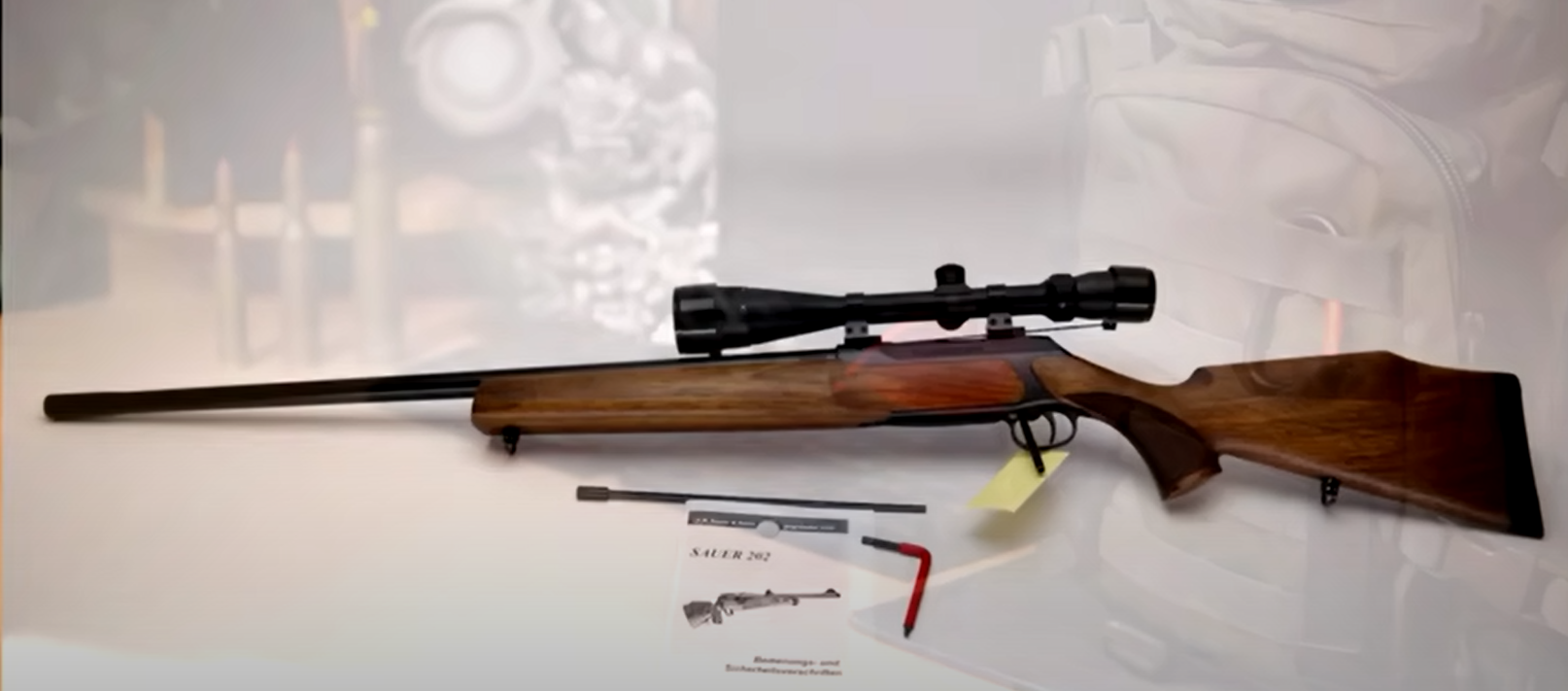
The Remington Model 700 has been used by hunters since 1962 because its accuracy is ideal for this type of game. When starting with something brand-new like dove hunting, using a lower-priced rifle helps minimize any frustration or disappointment that comes along with learning how everything works before investing too much time into this particular skill set!
Pattern Your Rifle
One of the most important skills to practice when you are just starting out is patterning your rifle. Pattern refers to testing different types of ammo until you find one that shoots well in your particular gun.
The idea behind finding a good pattern is two-fold: first, it makes sure you can hit what’s in front of your barrel; second, it helps save money by not wasting rounds on bad shots or non-vital body parts (this has its place for more advanced hunters). Practice this step diligently and follow these guidelines for best results:
- If possible, do group firing at 50 yards rather than 100 – this saves time and ammunition while still giving accurate results.
- Shoot into a dirt berm several times before shooting toward targets. This step ensures that your barrel is clear of any obstructions before you take a shot at a game or vitals.
- When using slugs, fire three-shot groupings for best results. If possible, have someone else load each slug so you can shoot all three groups quickly – this saves ammunition and time.

- Repeat the pattern several times for consistency. Patterning is not an exact science and you will likely find that your gun patterns are better with some types of ammunition than others – this is normal, but it helps to have a consistent baseline from which to start before finding the best round for your particular weapon.
Be Patient
Dove hunting is a great sport, however, it takes time to build up the experience you need. Dove is known for its speed and ability to fly in large flocks. Be patient with your shots as they will come back around if missed.
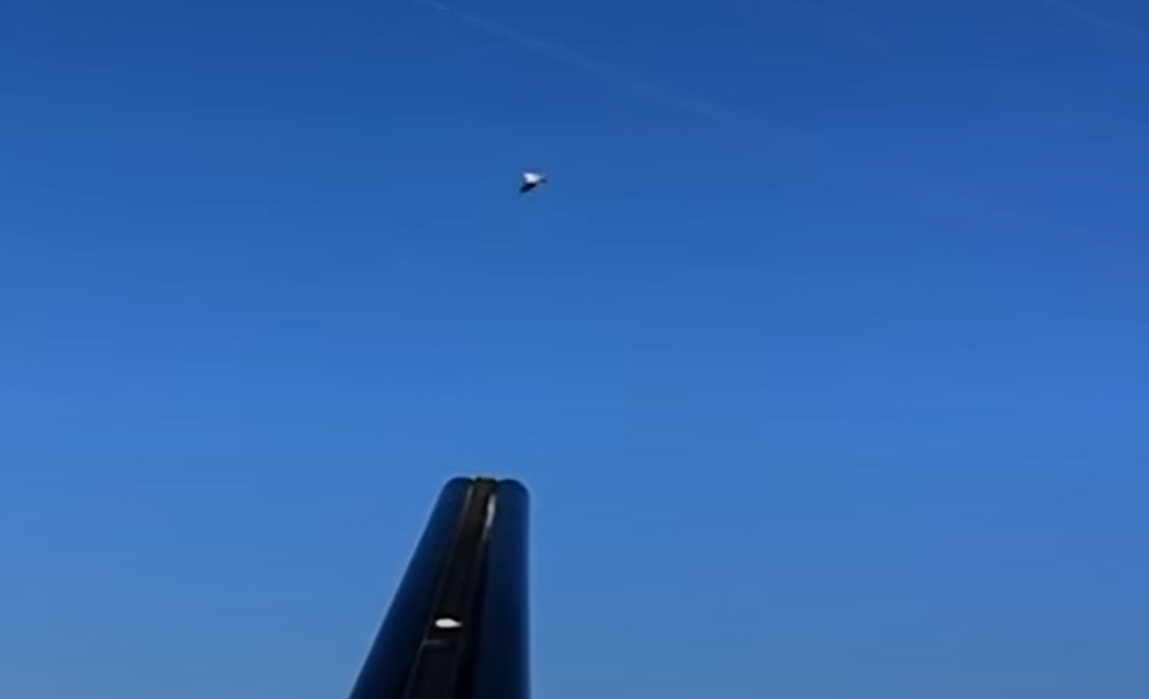
Patience is especially helpful when hunting with a buddy or group. Doves can be very cooperative, and it is common for them to come within shooting range even if other hunters are present in the field.
Doves will sometimes fly out of sight due to wind direction or surrounding landscape like hills and roads. If you spot birds flying overhead but they do not seem willing to land near you, it may be best to relocate your position instead of constantly trying over and over again without success. Be patient as well as flexible during dove hunts!
Safety
- Keep your finger off of the trigger until you’re ready to shoot.
- Don’t shoot at a bird that’s too high.
- Never stand in front of a tree or post when you’re about to shoot, and always check for obstacles behind your target before shooting.
- Always use proper ammunition for your firearm and wear appropriate clothing while out in the field (bullets can go through anything).
- Treat every gun as if it were loaded at all times! It’s better not to take that chance than risk injury or death by accidentally shooting someone/something else – even if you think there isn’t any ammo left in it…you never know when cartridges could get stuck inside causing the barrel to explode on impact with another object (i.e., tree branches).
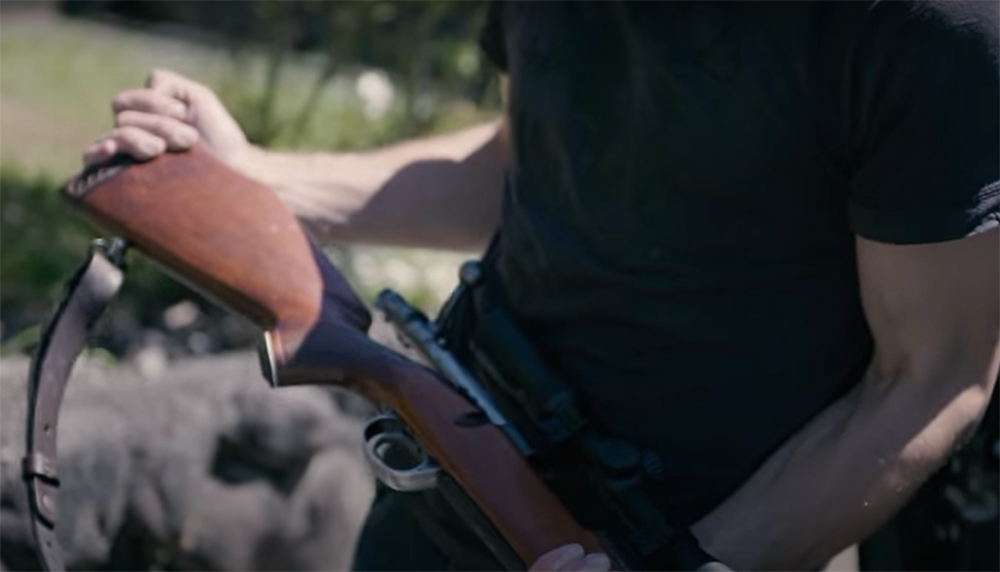
- Only shoot at directly overhead birds! It’s common sense but it should be said regardless…you don’t want to accidentally hit another hunter or underestimate your shot when there is a chance of injuring other people downrange from where you’re shooting.
- If anyone gets injured, call 911 immediately and wait for medical personnel on-site before returning home/to your vehicle – this will give authorities time to make sure everything else stays safe during transport (i.e., no more accidental shootings).
FAQ
Can I shoot inside the city limits?
You should check your city and county ordinances to determine whether you can hunt doves inside the city limits. While it may be legal, there is usually a place designated to hunt doves.
What kind of license do I need?
You don’t need a hunting license to hunt doves, but you will need one if you want to hunt deer or turkey.
Can I legally drink while hunting?
It is illegal to hunt under the influence of drugs or alcohol.
What is the purpose of dove hunting?
Dove hunting is a popular sport that has existed for centuries. It’s also an effective way to control dove populations around agricultural areas where crops are grown.
What is a baited dove field?
A baited dove field is a place where grains, seeds or other types of food have been left out to attract doves.
Useful Video: BEGINNERS GUIDE TO DOVE HUNTING
Final Thoughts
Dove hunting is a great sport and also an excellent way to support conservation efforts. Hunting preserves wildlife populations helping them maintain their natural balance while providing people with quality food and recreation opportunities. Dove hunters should keep in mind that it’s not just about the trophies, but rather working together as a community for some good old-fashioned fun!
We hope this article has provided you with valuable information on dove hunting.

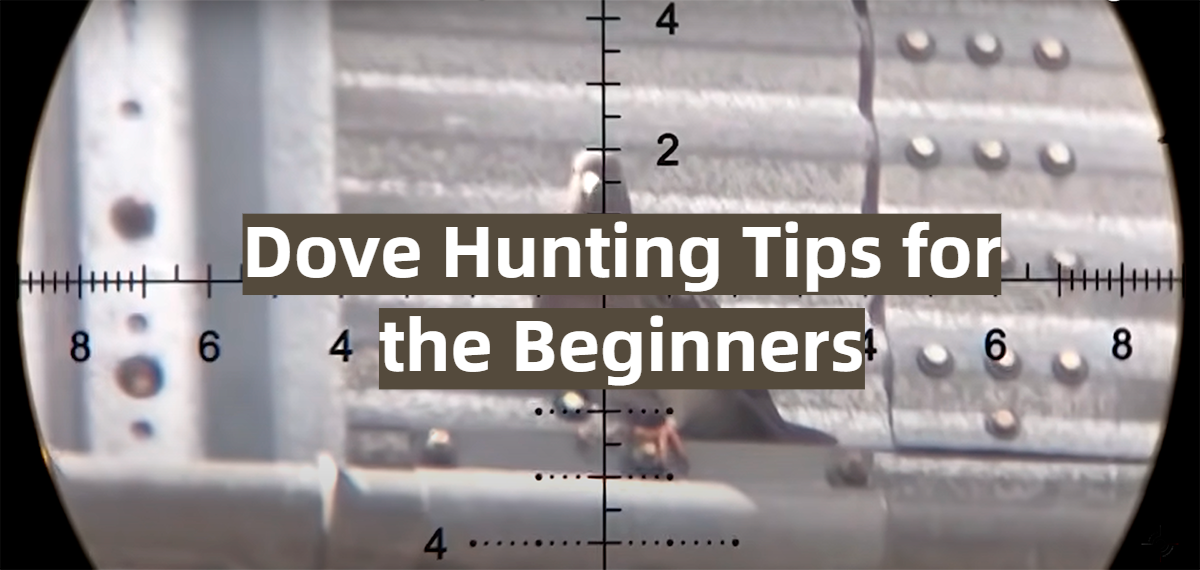




Leave a Reply